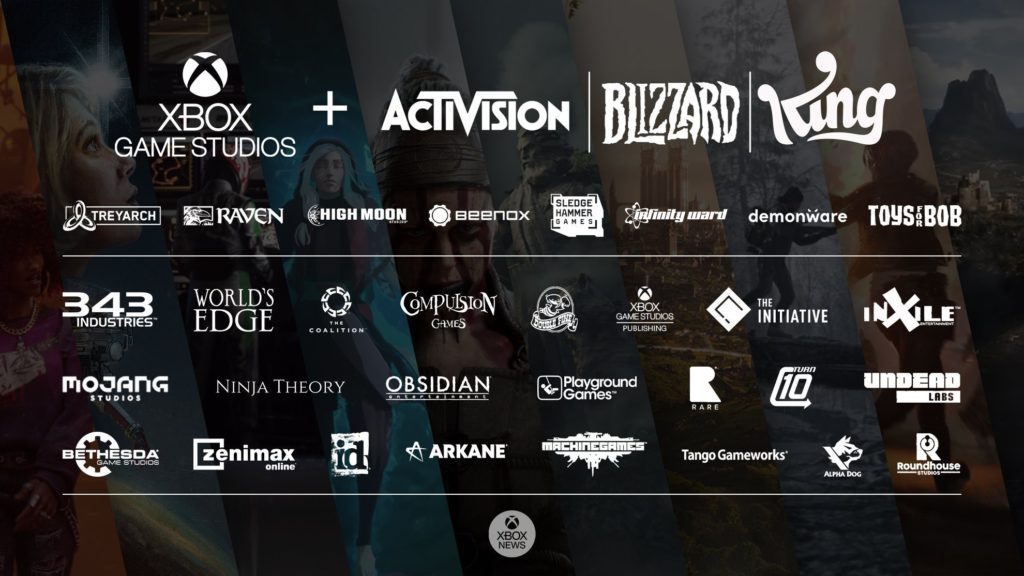Microsoft is finally closing its $69 billion purchase of Activision Blizzard, 633 days after announcing its bid. You would think that Xbox now controls everything relating to Activision, right? The answer is: mostly.
U.K. regulators said on Friday morning that they approved of an altered version of the deal, which will involve French mega-publisher Ubisoft purchasing control of cloud gaming rights to Activision Blizzard’s current and upcoming console and PC games. Ubisoft now has cloud streaming rights for Call of Duty, all other current Activision Blizzard games, and any coming over the next 15 years. It was a key concession from Microsoft that helped get the deal over the line with UK regulators.
Ubisoft will now control where Call of Duty and other Activision Blizzard games show up on cloud gaming services, with the exception of EU countries and the various cloud gaming deals Microsoft signed previously. If you live in a country that’s part of the European Economic Area (EEA) — which includes EU countries and also Iceland, Liechtenstein, and Norway — then you’ll get a free license to stream via “any cloud game streaming services of their choice” all current and future Activision Blizzard PC and console games that you have purchased.
If you’re outside the EEA, then it’s up to Ubisoft which services get cloud streaming rights for Activision Blizzard games, including licensing these back to Microsoft to include in Xbox Cloud Gaming. In theory, Ubisoft could deny Microsoft a license for future Activision Blizzard games, but in reality, that’s extremely unlikely to happen. Microsoft will need to pay a wholesale arrangement fee to license Activision Blizzard games for its cloud services, though.
As reported by Ars Technica,
Facebook may have to overhaul its entire ad-targeting system after a California court ruled last month that the platform’s practice of routinely targeting ads by age, gender, and other protected categories violates a state anti-discrimination law.
The decision came after a 48-year-old Facebook user, Samantha Liapes, fought for years to prove that Facebook had discriminated against her as an older woman using the platform’s ad-targeting system to shop for life insurance policies.
Liapes filed a class-action lawsuit against Facebook in 2020. In her complaint, Liapes alleged that “Facebook requires all advertisers to choose the age and gender of its users who will receive ads, and companies offering insurance products routinely tell it to not send their ads to women or older people.” Further, she alleged that Facebook’s ad-delivery algorithm magnifies the problem by using these required inputs to serve the ads to “lookalike audiences.” Through its algorithm, Liapes alleged that she found that Facebook “discriminates against women and older people,” by intentionally excluding them from seeing certain life insurance ads.
This, Liapes alleged, caused harm by preventing her from signing up for deals that “often change and may expire”—deals which she said were disproportionately being advertised on Facebook to younger and/or male audiences. As evidence, Liapes pointed to ads that Facebook did not serve to her—allegedly because advertisers used the platform’s Audience Selection and Lookalike Audience tools to exclude her—as an older woman.
Facebook argued that its tools are neutral and claimed that Liapes’ complaint omitted evidence showing all the ads that she was served—suggesting that Liapes may have been shown different versions of ads that she claimed the platform had excluded her from seeing. Facebook also claimed it was possible Liapes was shown ads advertising better deals, negating any harm caused. But the court in September disagreed with Facebook’s arguments, finding that Liapes sufficiently stated a valid discrimination claim.
Mark Gurman’s latest newsletter says that Apple remains concerned about the Vision Pro’s weight and is working on making the next generation of the headset lighter. Gurman also describes the difficulties the company is facing in dealing with the prescription lenses that will be needed for many customers.
Apple is hoping to make the device lighter and at least slightly smaller. It currently weighs about a pound, and testing has shown that it can feel too heavy for some users — even in short stretches. Apple is considering addressing this on the first model with an over-the-head strap, but making the hardware lighter is a better long-term solution.
Gurman says that the issue of prescription lenses also concerns Apple. The huge variety of lens combinations that would be needed could prove a nightmare for retail stores, which would need to have each combination in stock for try-on sessions, as well as for purchases. Fortunately, Apple may have a solution: shipping custom-built headsets from the factory with preinstalled prescription lenses.
That might simplify the experience for customers, but it also would bring fresh problems. First, built-in prescription lenses could make Apple a health provider of sorts. The company may not want to deal with that. Also, that level of customization would make it harder for consumers to share a headset or resell it. And, of course, a user’s vision prescription could change over time.
A new report published by the Wall Street Journal looks into the issue of businesses profiting from AI. The issue is simple: tech giants like Microsoft, Alphabet, Adobe, and AWS are spending a lot on AI, but customers are currently not paying enough for profits to be made.
In the headlining example, an insider told the WSJ that Microsoft used AI from its partner OpenAI to launch GitHub Copilot at $10 per month, but was losing >$20 per user per month on average in early 2023. Some Copilot users were even costing Microsoft as much as $80 per month.
It is well established that AI is a resource hog. Its proponents seem willing to invest in large quantities of expensive hardware, invest in associated software development, and run up power (and water) bills with abandon. As well as the large compute and data resources required to get an AI up and running, it must be maintained, upgraded, and serviced for competitive availability.

